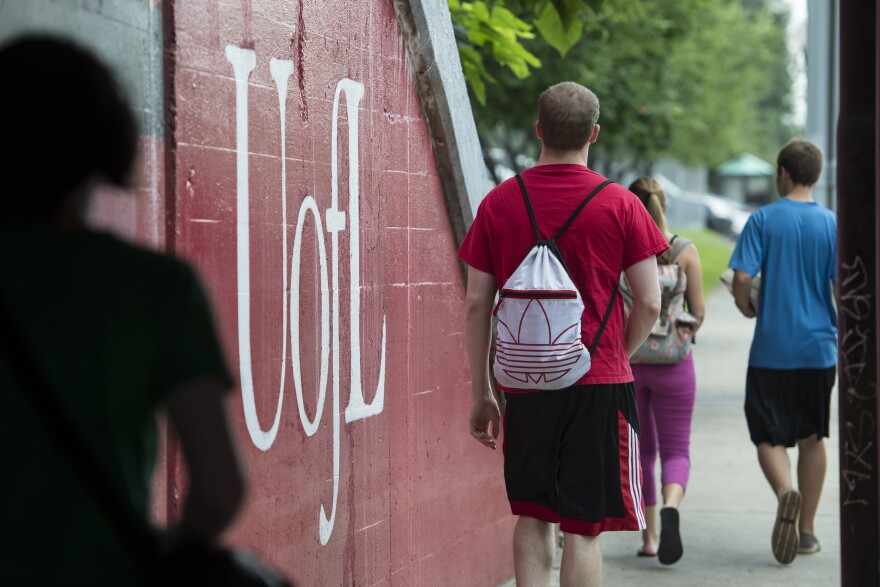Sohail Saheb aspires to keep Louisville safe from floods. As a geotechnical engineering student at University of Louisville, he studies how soil absorbs water with an eye on flooding prevention.
He went to Iran, where he’s from, in May because his mother had cancer surgery. Now, he’s barred from coming back to the U.S. because of the ongoing travel ban.
President Donald Trump implemented the new restriction, which went into effect June 9. Citizens from 19 countries, including Iran, are no longer eligible for U.S. student visas. At U of L, the largest group of students affected are from Iran.
“We can work remotely just for a month or two, just for an emergency situation. But after that, we need to be present at the university, because some of our work is in field tests or laboratory tests,” Saheb, a Ph.D student, said. “So right now the situation is unclear, and I'm just waiting for an update.”

U of L currently enrolls 1,066 international students, including 39 from Iran, according to university data. Across the country, Iranian students make up about 1% of the international student population in higher education. At U of L, it’s about 4%.
“I get probably 100 emails a month from people that want to come here from all over the world,” said Amir Amini, professor of bioimaging at U of L. “I'm sure the people that are planning to come here, and they have been approved to come here, they're top people, they're smart students, and they can really impact.”
Amini is Iranian and has taught some of the Iranian students who’ve come through U of L during his tenure.
Members of the Iranian Students Association declined to speak on the record about their experience here. They fear criticizing the federal travel ban could risk visa revocation, detention and deportation.
One student, who LPM News agreed not to identify in this story, said 90% of Iranians he knows at U of L are Ph.D. candidates, attracted also by the school’s 12-month teaching assistantships, longer than the 9-month contract offered elsewhere.
“That means that in the summer, many people in other universities need to look for jobs or some kind of in campus job to get money for their summer,” the student said. “So they always have this stress to find a job in summer, but in U of L, you don't have that problem.”
According to university data, there are 546 international students slated to start at U of L in the fall. Twenty of those are Iranian.
“The University of Louisville continues to support all international students, particularly those impacted by the travel ban during this period of uncertainty,” Paul Hofmann, associate vice provost of international affairs, said in a statement. “Despite these challenges, UofL’s international students continue to succeed in the classroom and contribute to the learning experiences of all students.”
U of L also has currently enrolled students and newly admitted students from other countries on the travel ban list, including Burma, Congo and Yemen.
All of the students from countries on this list risk not being able to fully come back as a Cardinal if they travel outside the U.S.
“The campus of the university was amazing. And the professor, my advisor of the project and the research group were amazing, and I loved working with them,” Saheb said. “I miss Louisville and the environment of the city, actually, and beside the weather and the campus of the university, I liked some parts of the city, like the Ohio River I visited once, and I would like to be there again.”





